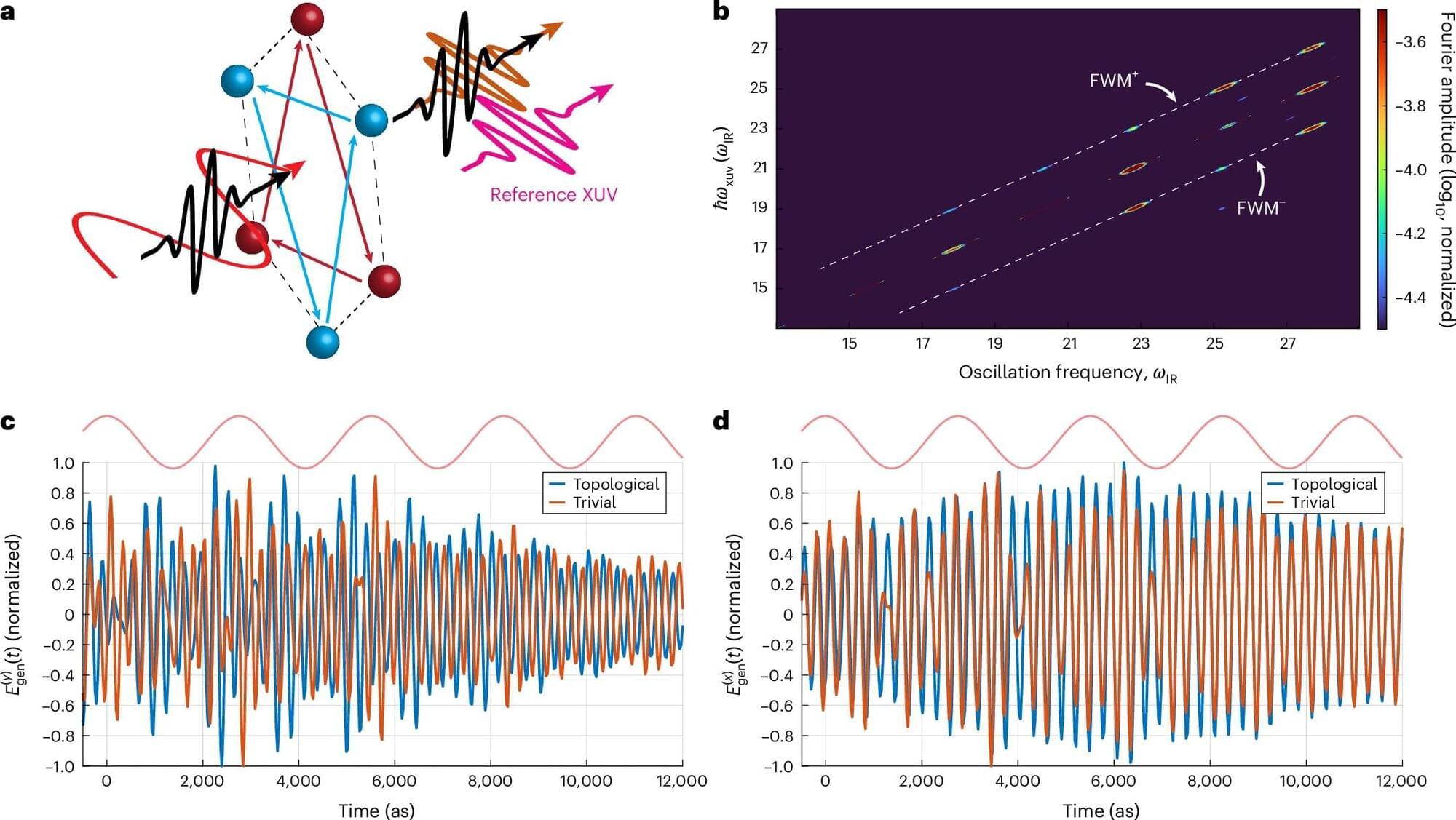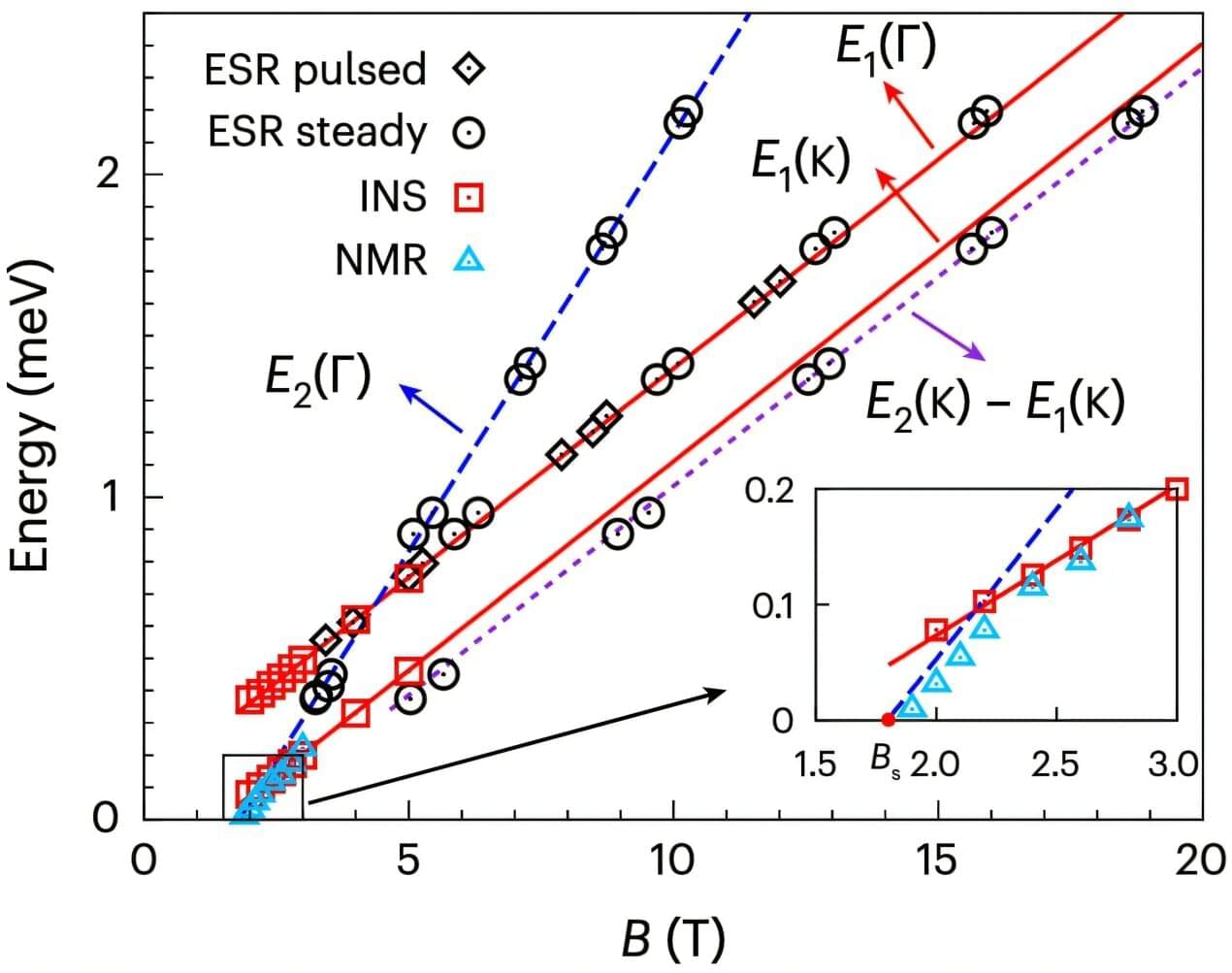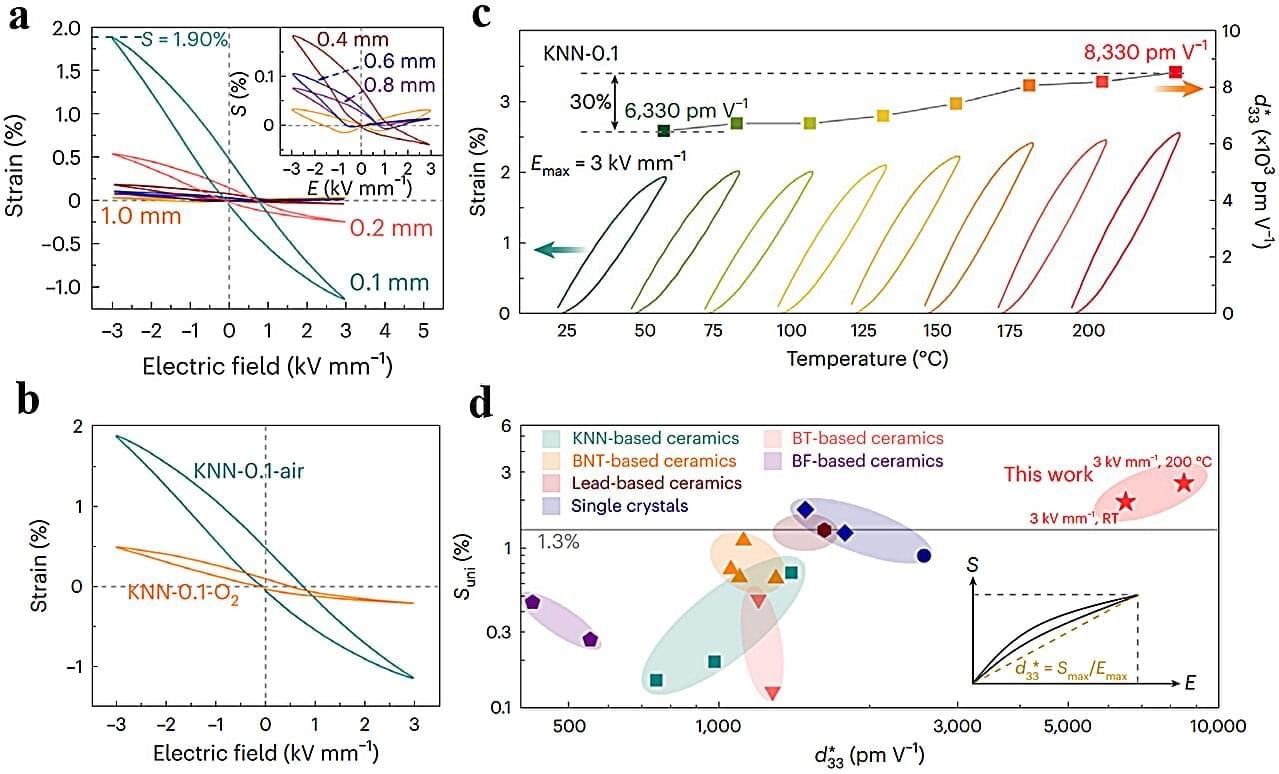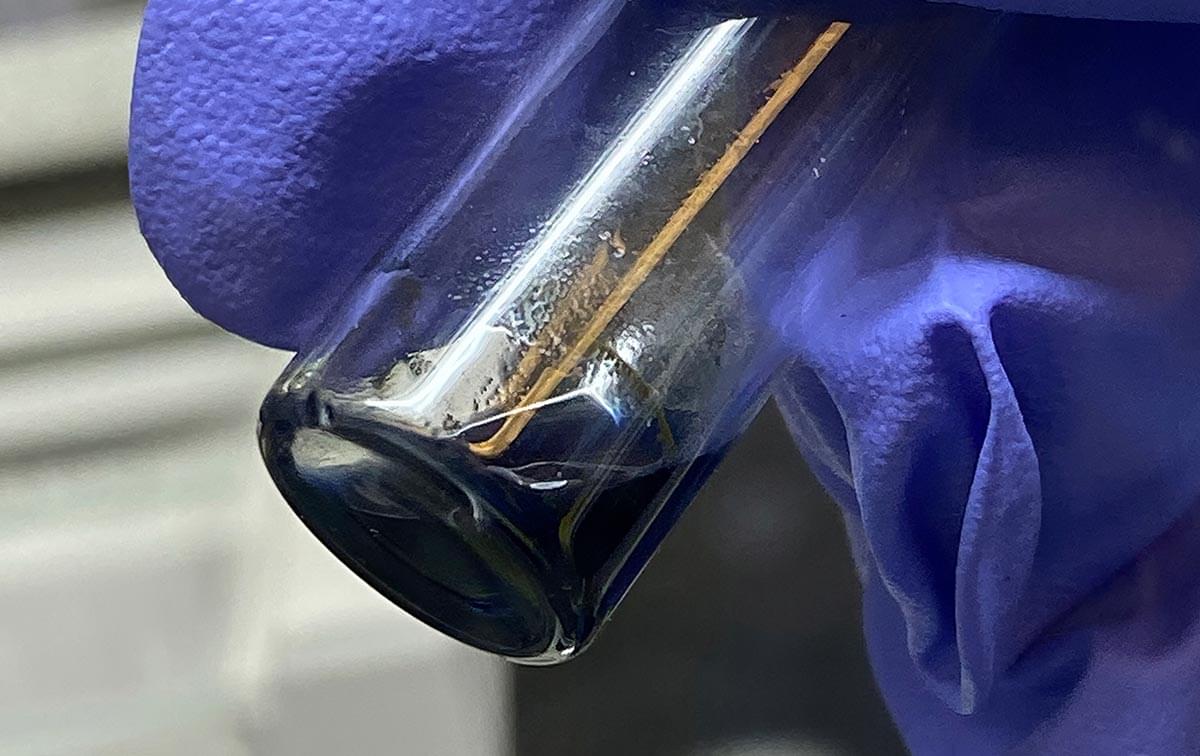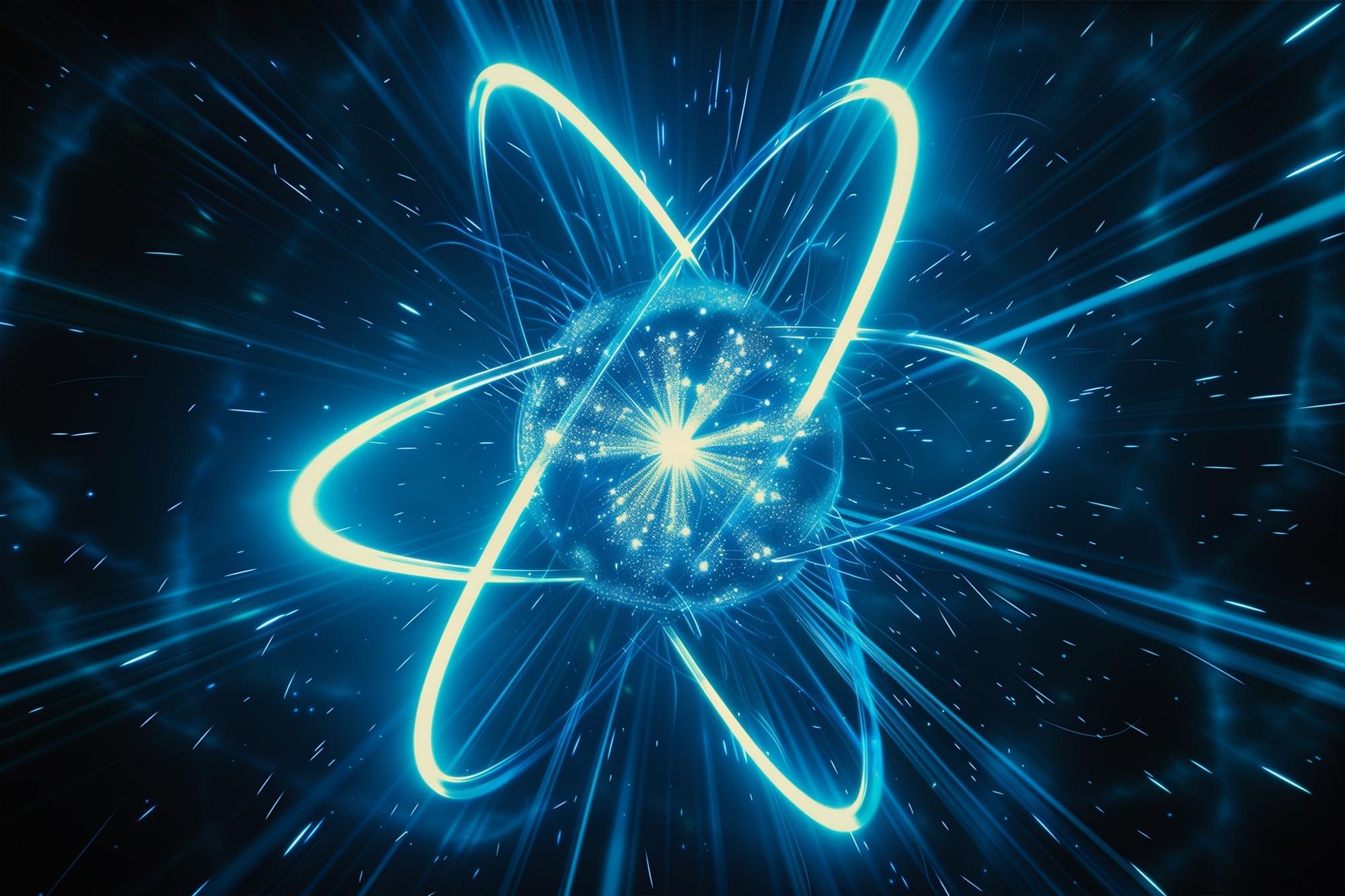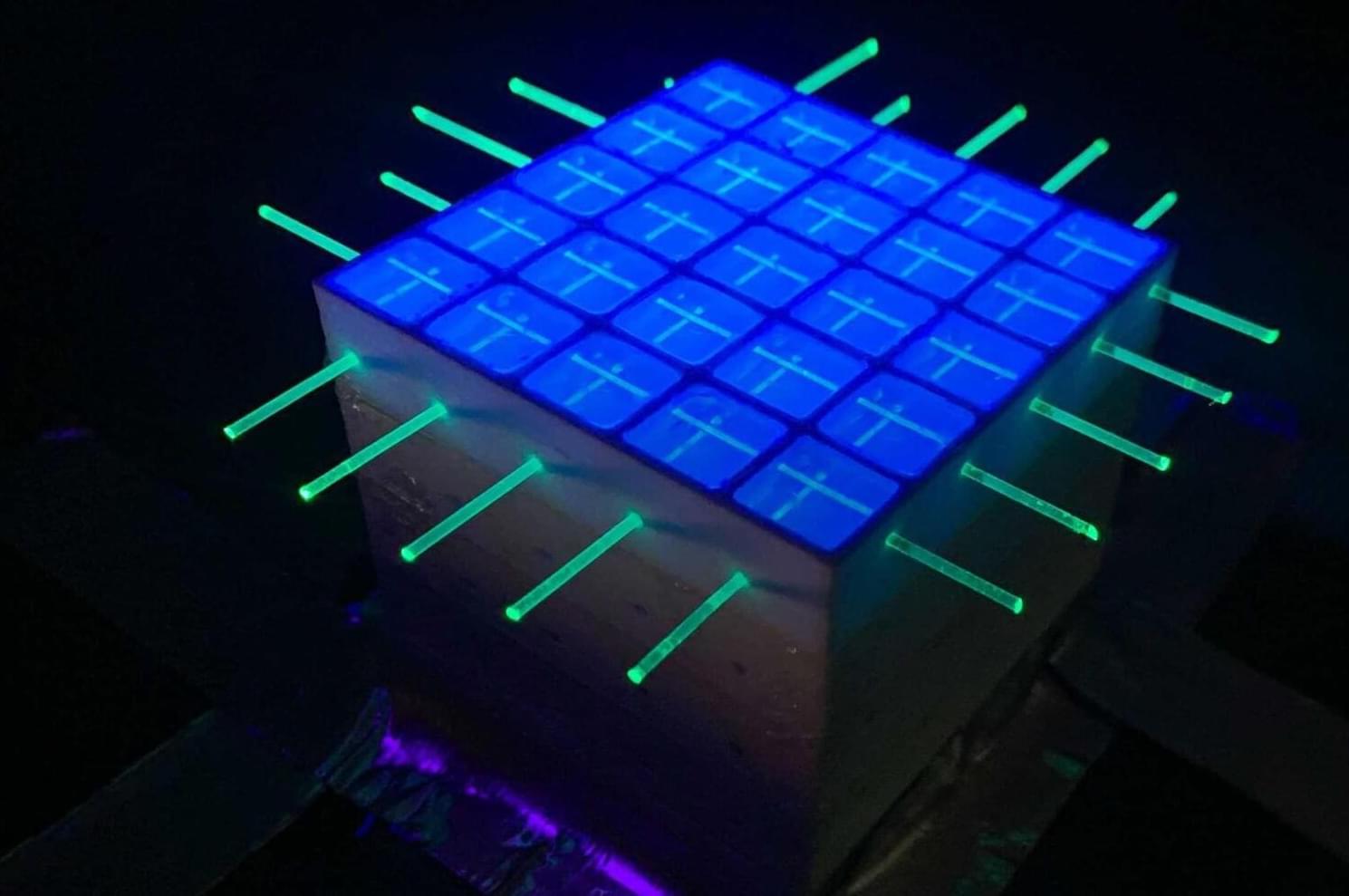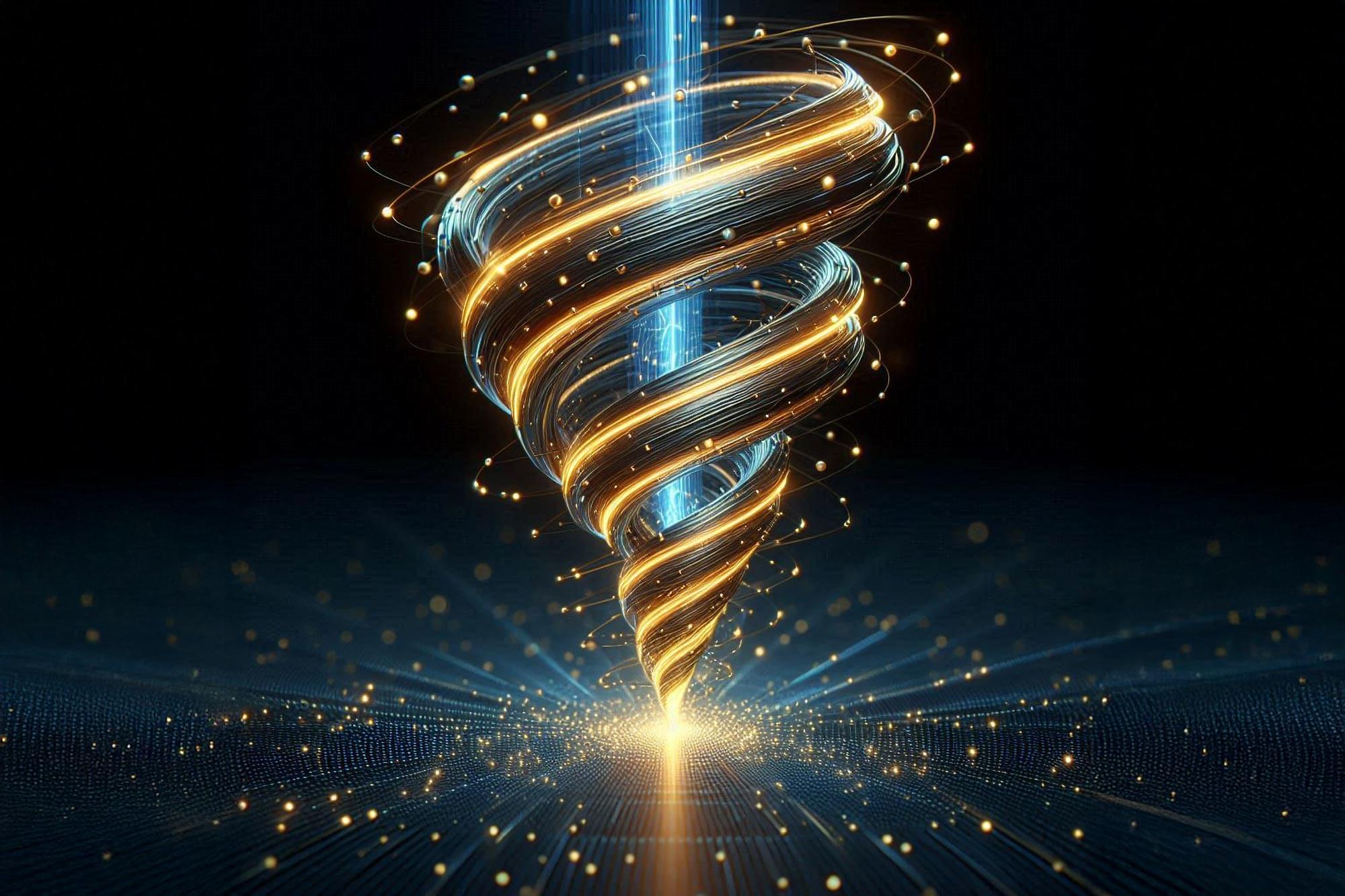Instantly turning a material from opaque to transparent, or from a conductor to an insulator, is no longer the stuff of science fiction. For several years now, scientists have been using lasers to control the properties of matter at extremely fast rates: during one optical cycle of a light wave. But because these changes occur on the timescale of attoseconds—one-billionth of one-billionth of a second—figuring out how they unfold is extremely difficult.
In a new study published in Nature Photonics, Prof. Nirit Dudovich’s team from the Weizmann Institute of Science presents an innovative method of tracking these rapid material changes. This advance in attosecond science, the study of the fastest phenomena in nature, could have a wide variety of future applications, paving the way for ultrafast communications and computing.
If you have ever seen a rainbow, you’ve seen a practical demonstration of how light slows down and is refracted when it passes through matter, in this case, raindrops. Sunlight is composed of a broad spectrum of colors, each of which experiences a different delay as it passes through the droplets. These differences cause the colors to become separated, producing a radiant rainbow.
